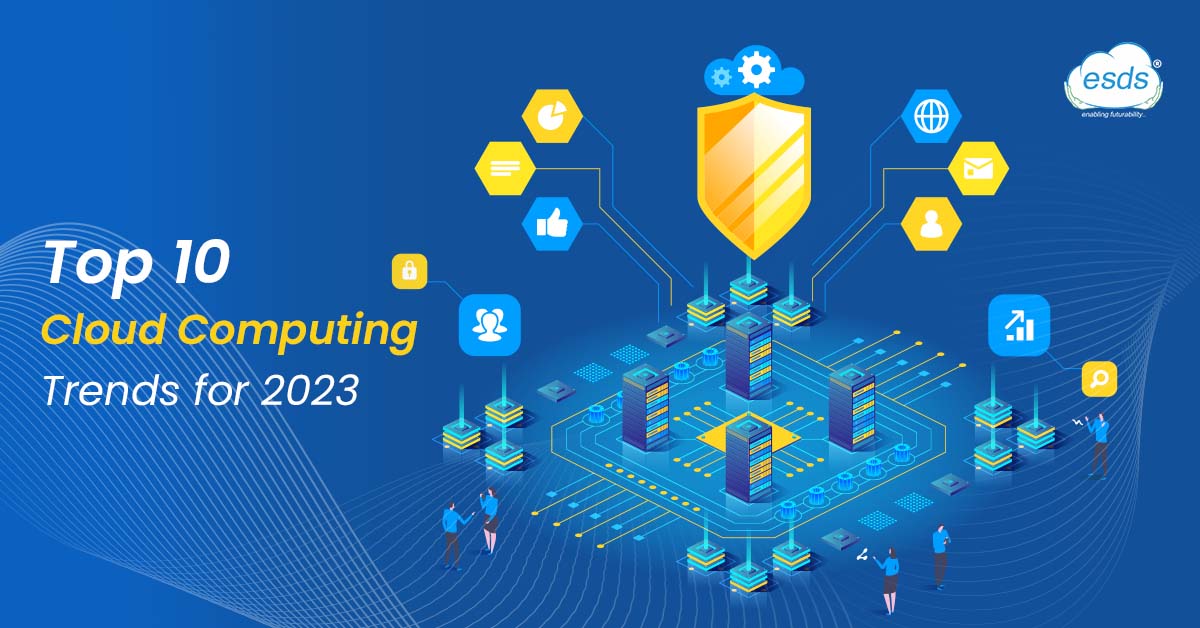
The market for public cloud services in India will grow 29.6% from 2021 to $7.3 billion by the end of 2022, predicts Gartner. Since remote working options were made possible by the pandemic of the past two years, every firm was compelled to embrace cloud platforms like never before. It paved the path for businesses to integrate cloud technologies into their operations for more flexibility in such turbulent times. Every corporation wanting business continuity, cost reduction, and enhanced future scalability must now use cloud computing.
The following are some of the biggest cloud computing trends for 2023

1. Multi and Hybrid Cloud Deployment
According to Gartner’s forecasts, more than 75% of midsize and large enterprises must have adopted a multi-cloud or hybrid IT strategy by the end of 2021. Over 90% of businesses will choose a hybrid cloud solution architecture in 2021, according to the IDC analysis, which combines on-premise, dedicated private clouds, several public clouds, and legacy platforms.
The reason is that businesses now understand that data management involves combining a variety of appropriate cloud deployment strategies rather than relying solely on one cloud platform or architecture. A lot of businesses will want more than one vendor for hybrid or multi-cloud deployment in 2023 to get the most out of each solution. A hybrid cloud architecture offers a combination of public and private clouds dedicated to a specific company whose data is their key business driver, such as insurance, banks, etc. Consequently, Multi and Hybrid Cloud Deployment will be among the top cloud computing trends in 2023 and the years to come.
2. Edge Computing
Here is a brief explanation of edge computing in case you’re unclear. In edge computing, data is stored, processed, and analyzed geographically closer to its source. Edge computing applications that process and analyze data at the network’s edge are expanding as a result of the increasing use of 5G. Greater privacy, security, speed, and efficiency are ensured by edge computing. Edge computing also allows companies to streamline operations, automate procedures, boost performance, and, most importantly, accelerate their digital transformation.

No comments:
Post a Comment